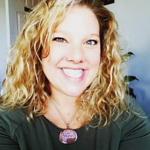We all seek meaning in life, more now than ever. A significant year marker has just passed with the pandemic and an anniversary we didn’t anticipate is now here. This anniversary is a reminder to all of us that we were, a year ago, forced into a lockdown that caused our lives to come to a screeching halt. One year has passed and it is an anniversary of hard things that took many different shapes for folks.
Grief and the Pandemic
You may say, or hear others use the term “pre-pandemic” to remember our life before it. It is important to recognize experiences that we did not want, but had to live through. This lack of control and sudden loss can lead to trauma. Grief work is traumatic. It is an experience we are all still processing from losing so much. Life is not the same, nor will it be, and we hope for the better still with everything that has happened. Possibly you are grieving the loss of what could have been, what was, and what used to be while at the same time possibly experiencing anxiety about the future.
What Does Grief Look Like?
Grief is more than just the feeling we have when someone we love passes away. Grief is also about the love that you had that was changed or the love you still have for others but cannot give in the way you want. It can also be for ideas and dreams that you held close to your heart. Grief is the actual acknowledgement of the value of a person, place or idea that meant so much to you. It is the acknowledgement in our body and our heart that we have been changed. It is giving weight to something that matters. Processing this feeling changes your relationship with yourself and highlights what happened in your life.
It is a normal human experience to mourn loss with pain, love and sadness alongside a lot of other mixed feelings. When you think back towards this past year in your own life, it may be helpful to make space for the things that you have been forced to let go of and allow yourself to grief. Consider how to process and manage it with yourself. Trauma and grief are the change we did not want; healing is the change that we DO want. We can heal even when we have been devastated. To reclaim your life is both work on an individual level and based in community with others.
What steps can I take to deal with my grief and emotions?
Here are some practical steps to take to start managing your experiences and make meaning of what we have lived through so far. As a reminder, this is never a replacement for therapy but these questions are often used with a qualified licensed therapist present. Find a quiet place where you have time to think.
Acknowledge the pain inside your body and outside yourself, where is it? Your chest, your neck, your head? Where does it impact you now?
What are the new routines you have adopted to cope with life now, how are they serving you? It’s been a year, are you able to find ways to acknowledge your strength and resilience?
Find an avenue of expression being any verbal, art, or written ways to emote the pain and get it outside your body. Dance, scream, journal and sit with it.
Seek counseling for your experience and process the experiences of the losses of life, people, or places you once knew. What or how it is different and what changed?
Think of ways to honor those lost or those you miss terribly. Find a specific ritual, a place or a ceremony that can honor the relationship and remind you of good memories. Have that experience and do not feel it has to end because something did.
Thank you for showing up everyday, when your bones are weary, tired and sad. Thank you for continuing to love the world, and each other even though life is hard and incredibly cold at times. I hope you remember how special you are, to be living, and living through this. Please let someone in to help you, you and I are one.
We are not truly ever alone, just all walking eachother home.
 About Jennifer Rego, MSW, LICSW
About Jennifer Rego, MSW, LICSW
Jennifer is a psychotherapist with over sixteen years of experience in the mental health field based in Massachusetts. She provides individual and family counseling, movement-based healing, clinical supervision and facilitates various workshops in the community with other multi-disciplinary professional providers.

